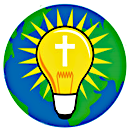Sticky Knowledge
At Cranford Park CE Primary School, we have identified the important knowledge that we want our children to remember. Some of this knowledge is progressive – children build on it year-on-year to make progress in the subject. An example might be, “Know how to identify bias in an artefact.” To achieve this, one must first know what an artefact is, how the sources of an artefact may differ and so on. Other knowledge we want them to remember might be key facts – the sort of thing you might get in a quiz perhaps! For example, “Know that the Battle of Hastings took place in 1066.”
We call this our 'Sticky Knowledge'. We want our children to make excellent progress across all areas of the curriculum; this means knowing more and remembering more.
Learning happens when pupils make sense of ideas in relation to what they already know, and we therefore carefully structure our curriculum to ensure that links to prior learning can be made. As a school, we consider how children learn and implement various strategies in order to support them to transfer knowledge from their working memory to their long-term memory. We use retrieval practice as a useful revision and effective learning technique that helps in memory retention of key knowledge. In practice, teachers will plan for children to recap prior learning through various quick and active tasks, including ‘my turn your turn’, quizzes, summarising and memory mapping. We know that everybody forgets things unless they revisit that information, so by using retrieval practice we are interrupting the process of forgetting. This supports children in ensuring that sticky knowledge can stay with them forever.
Our sticky knowledge progression documents outline exactly what we want the children to know by the end of each year. This is also found in our lesson planning documents, where teachers can see what has come before and what will come after the sticky knowledge they are teaching, helping them to support learning. Each classroom has a display of the sticky knowledge learnt, so that teachers can refer back to this in appropriate lessons. At the end of a unit of work, as well as throughout lessons, children are assessed on their recall of that important sticky knowledge.
We also recognise that vocabulary breadth is related to academic success, so we have identified a glossary, or vocabulary progression, for each subject too. Children are specifically taught these terms and are encouraged to be ambitious in their vocabulary choices.
